ALMA, New Insights on the Universe
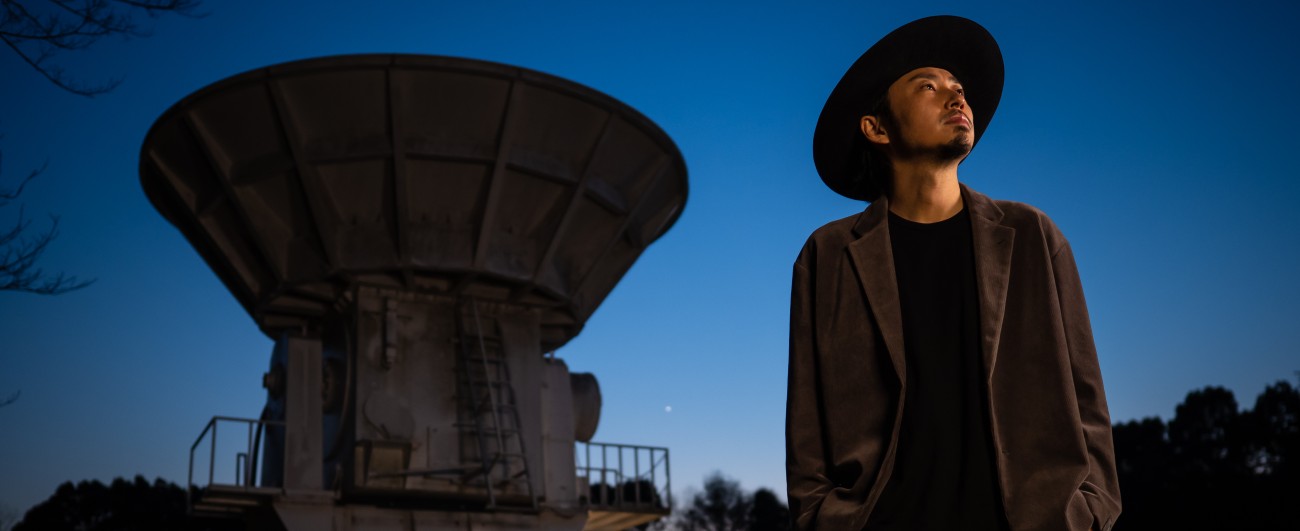 Credit: ALMA (ESO/NAOJ/NRAO). All rights reserved.
Credit: ALMA (ESO/NAOJ/NRAO). All rights reserved.
- TOP
- ALMA, New Insights on the Universe
- Nobuo Oki (ACIDMAN)
Looking for the Meaning of Life—ALMA Guides Us to Our Origin
Nobuo Oki, who is the vocalist and guitarist of the rock band ACIDMAN and also writes lyrics for their songs, has a great deal of love for space. Inspired by the ALMA project he saw on a TV program, he wrote a song called "ALMA" and visited the ALMA site in Chile in 2010 to shoot a music video. He sang with all his heart and soul in front of the ALMA antennas at the very early stage of construction at an altitude of 5000 m. What makes him so fascinated with ALMA and the Universe? He talked about his passion for music and his expectations for astronomy. (Interviewed and written by: Kimiyo Hayashi, Photographed by Yutaka Iijima)
Curiosity in space triggered by father’s saying “The Universe has no end.”
What made you interested in space in the first place?
Oki: I was a child who always wanted to know how this world is created. One day, my father said to me, “The Universe has no end.” That was the moment when I first became curious about space and my journey into the Universe began.
How old were you?
Oki: I think I was in the lower grades of elementary school. I got caught up in the word "no end" and tried to understand it. It was like I was looking at the Earth from above and zooming out into space, but I was unable to reach the end. My internal camera kept going up endlessly. I asked myself, “What is that?” This question made me stay awake all through the night.
Are you interested in space since then?
Oki: There was an event to see Halley's Comet in 1986 at the local children's center in Kawagoe City, Saitama Prefecture, and I was taken to it. The kids were lined up in a row, and each was allowed to see it for about 2 seconds (laughs). The image of Halley's Comet was vague, but I was thrilled by the magnificent scale of its orbit that takes the comet 75 years to complete. Although I didn’t have much knowledge about celestial objects like constellations, but I was always curious about how the Universe is created and read various books.
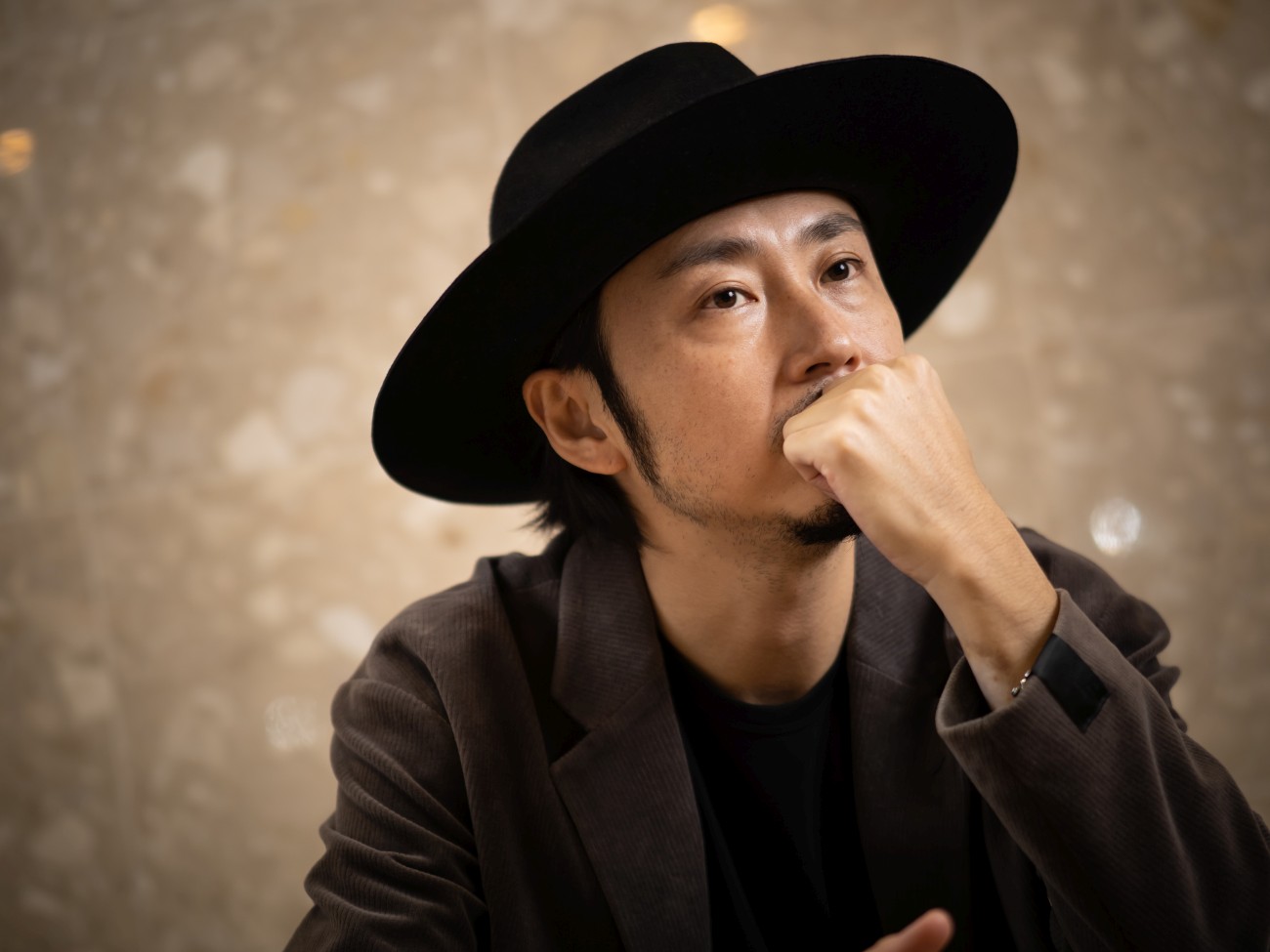 Credit: ALMA (ESO/NAOJ/NRAO). All rights reserved.
Credit: ALMA (ESO/NAOJ/NRAO). All rights reserved.
You studied pharmacy at university, didn't you?
Oki: I have a pharmacist qualification. My father is a pharmacist who runs a pharmacy business. Against this background, I wanted to be a musician since I was a high school student. My concern was that making a living from music alone would make my life unstable. In addition, I was told that if I go to university, I can leave home and live by myself. At that time, I was good at English, chemistry, and mathematics, and the subjects of the exam to enter the faculty of pharmacy were those three. So, it was a choice with ulterior motives (laughs).
The song ALMA inspired by the ALMA project on TV
The ALMA telescope started the scientific observations in September 2011 and celebrated its 10th anniversary last year. You wrote a song called "ALMA" before the start of the ALMA scientific observations and shot a music video at the ALMA site in Chile in August 2010. Was there any specific reason for writing the song ALMA?
Oki: I think it was around 2009, I saw the ALMA project on a late-night TV program. I was really surprised and impressed.
What about ALMA impressed you so much?
Oki: First, I was impressed with the scale. It was amazing that human beings planned to build 66 antennas of such a huge size at an altitude of 5000 m, which is higher than Mt. Fuji. I also learned for the first time that they need large antennaa to observe radio waves, instead of visible light. In the course of space development, countries have been competing with each other, but ALMA sought international cooperation among Europe, the United States, and Japan. Cooperation is a natural choice because it is a common desire of all human beings to explore the farthest reaches of the Universe. I thought, "How beautiful we human beings are!"
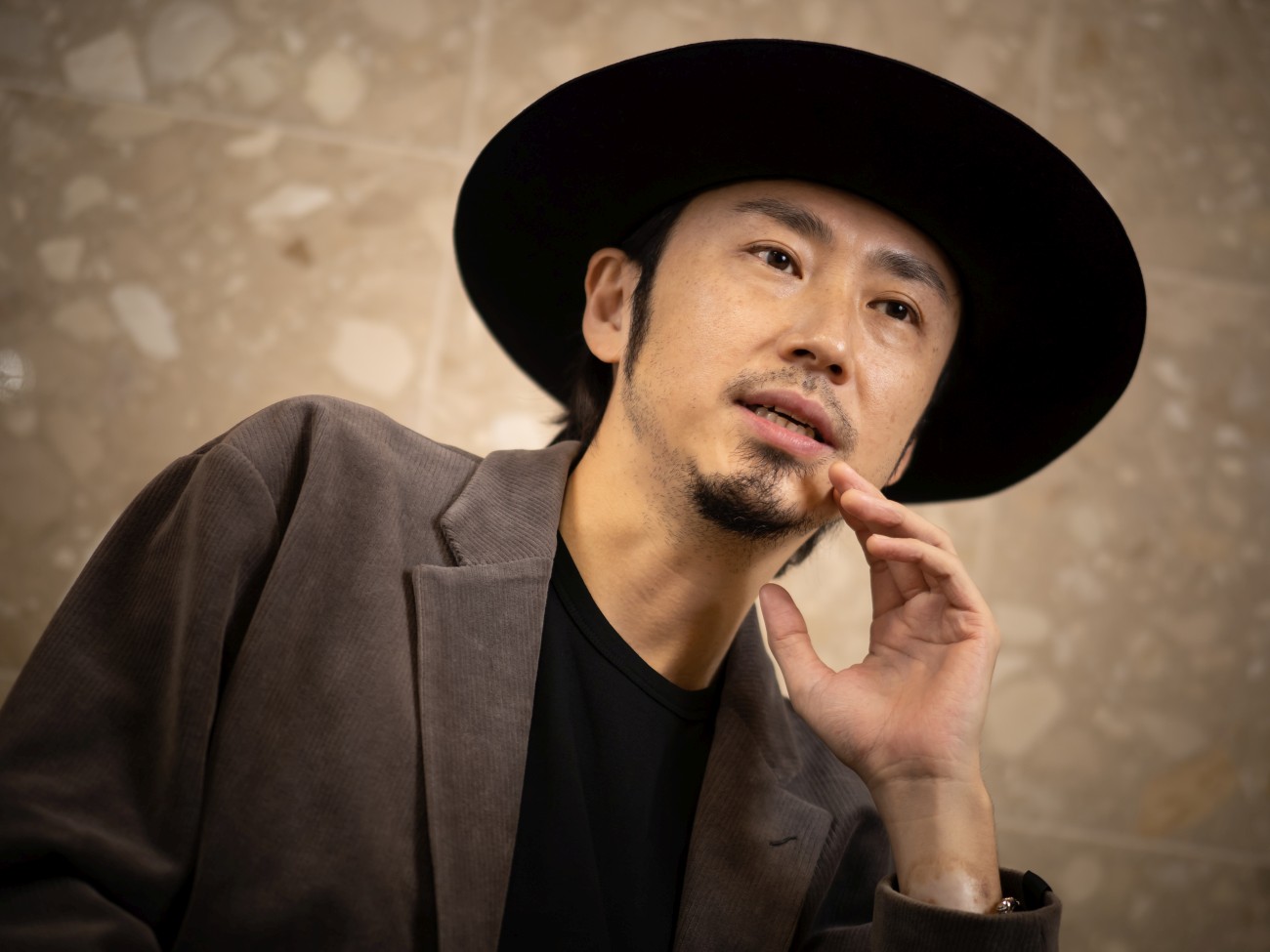 Credit: ALMA (ESO/NAOJ/NRAO). All rights reserved.
Credit: ALMA (ESO/NAOJ/NRAO). All rights reserved.
In space development, there was also a U.S.-Soviet race to the Moon in the 1960s. Your songs describe conflicts and stupidity of people hurting each other.
Oki: There may be an aspect that science and technology have developed due to wars. I'm not saying that those who have been involved in war are bad people. In 100 years from now, people might look back on the history and tremble with the "barbaric act” of people in the past. Going through such barbaric periods, I hope we human beings will gain intelligence and look up at the stars with a shared understanding and common language. In addition, when seeing things from a long-range perspective of the Universe, it is truly regrettable to spend the momentary life of 100 years at the longest, by fighting with each other. This is what I’ve learned from the Universe.
Certainly, considering the 13.8-billion-year history of the Universe, the length of human life seems like a blink of an eye.
Oki: Right. It's a waste of time to end the blinking moment with sadness. But when I look up at the Universe, I don't feel humans are tiny beings. After all, the collection of our tiny emotions and sensations creates the Universe. An individual constitutes the whole, while the whole consists of individuals. There is a moment when an individual and the whole are integrated into one. I'm always moved by this concept.
Searching for the meaning of our life on this planet
It’s remarkable that your attention was drawn to a global astronomical endeavor being undertaken in the most inhospitable place on earth at 5000-m altitude and the observation of the Universe at radio wavelengths.
Oki: At first, I thought observation would be made at optical wavelengths, but ALMA observes radio waves. I was surprised that radio observation would be able to capture the composition of cosmic molecules, such as amino acids. The telescope can observe radio waves emitted from each substance. It was beyond my imagination.
You reacted to amino acids (laughs).
Oki: Because I’m a pharmacist (laughs). It was surprising to me that ALMA has the potential to detect amino acids in the far reaches of the Universe and unveil even their chemical composition.
Amino acids, the building blocks of life, provide us a clue to finding out where and how we were created. You wrote the lyrics "Exploring the eternal sky, in search of the meaning of your life" for the song ALMA. Was it inspired by the ALMA project?
Oki: My message was that "the Universe is where our life was created." At that time, I was writing songs with the theme of love and heart. Recalling the ALMA project that I saw on TV, I imagined the scenery of antennas standing in the desert and the people looking up at the night sky, and they were linked perfectly with the song. In addition, the word “alma” means "soul" in Spanish. I thought, "What a beautiful and lovely thing. This song should be definitely called ALMA." And I named the song "ALMA" at my discretion (laughs).
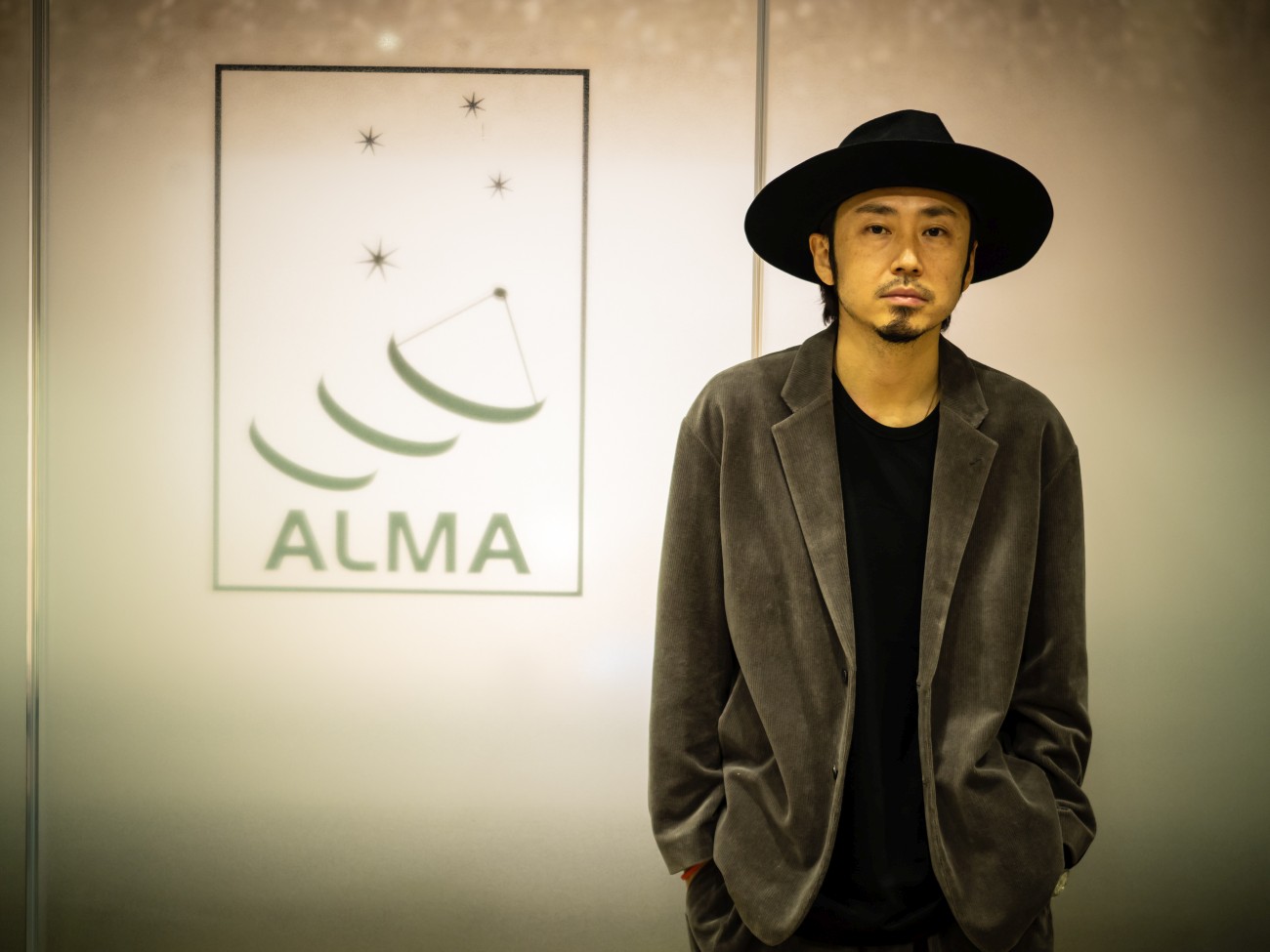 Credit: ALMA (ESO/NAOJ/NRAO). All rights reserved.
Credit: ALMA (ESO/NAOJ/NRAO). All rights reserved.
Masaaki Hiramatsu (EPO Officer at the NAOJ ALMA Project): ALMA's official catchphrase is "In Search of Our Cosmic Origins". In that sense, your message contained in the song ALMA is in line with the purpose of the ALMA telescope.
Oki: I guess it’s the "root reason" for us to go exploring the Universe. How was our life created? What is the purpose of our life? Why are we here? Are we the only intelligent life forms? In search for the answers, we reach out to the Universe.
Bursting into tears under the starry sky in Chile
What brought you to the ALMA site in Chile after writing the song ALMA?
Ok: I never imagined going to South America. I was asked a question "What does ALMA mean?" from my coworker (Kensaku Kakimoto) who directed our music video (MV). So, I explained to him what the ALMA telescope is. As soon as my story was over, he said, "Let's go to the site!" The people of the record company got caught off guard and said "We don't have that budget." (laughs) In spite of that, Kakimoto didn’t give up and said, "I'll go even out of my own pocket." Then we contacted the National Astronomical Observatory of Japan (NAOJ) and received NAOJ’s kind consent for cooperation.
Your energy to move things forward is amazing. I heard it won’t be so easy to visit the ALMA site now.
Hiramatsu: ALMA is in the operation phase now and the telescope is busy. But at that time, it was under construction and I think the telescope was not so much occupied. You went to the site ahead of me (ALMA EPO officer).
Oki: I went there before the experts (laughs).
How was it visiting the site?
Oki: When I stood in the Atacama Desert, I saw a landscape I had never seen before. I felt like I was looking at the Earth. The sky was incredibly blue.
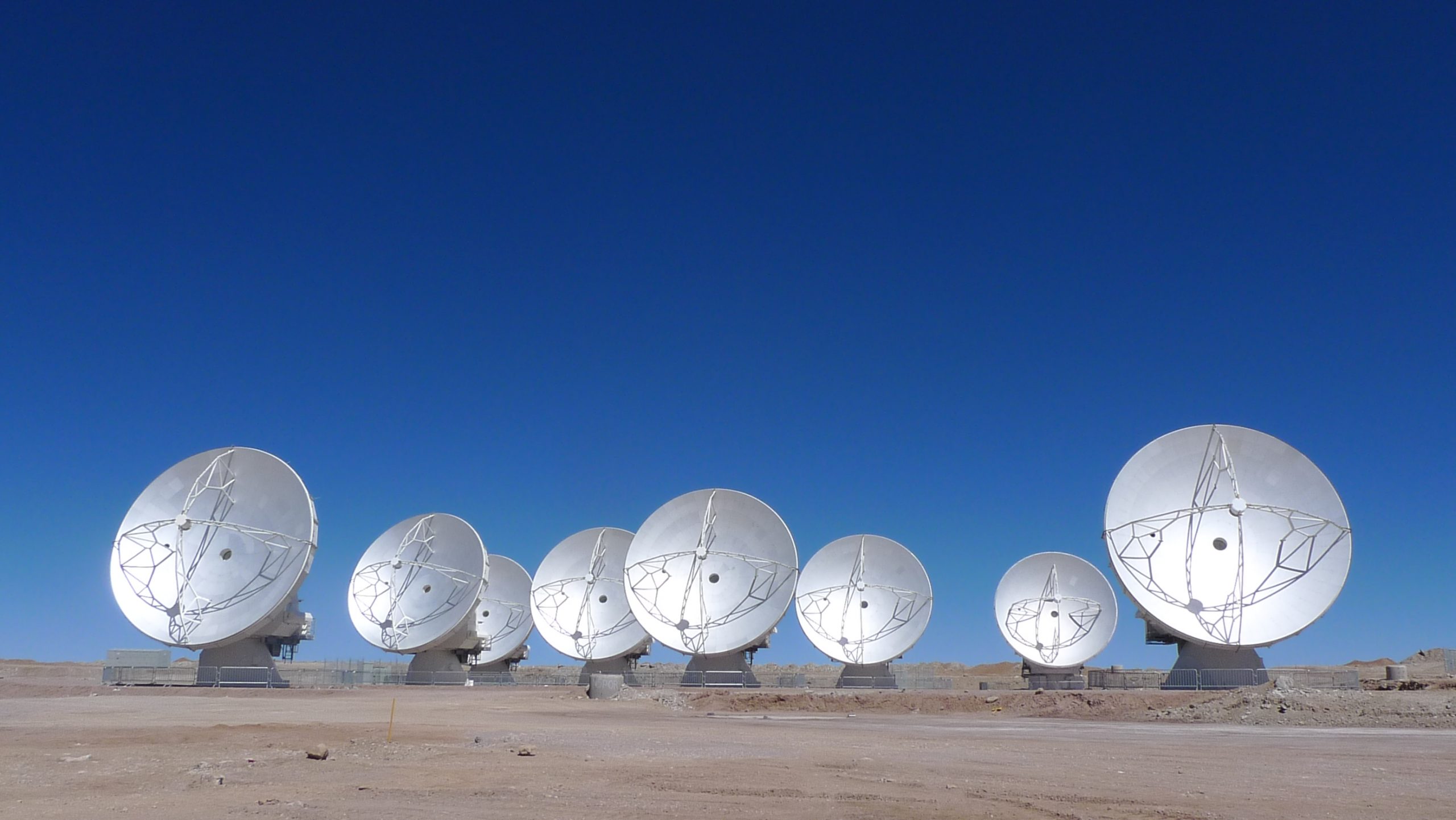 ALMA antennas photographed in September 2009. Credit: Norikazu Mizuno, ALMA (ESO/NAOJ/NRAO)
ALMA antennas photographed in September 2009. Credit: Norikazu Mizuno, ALMA (ESO/NAOJ/NRAO)
How was it when you saw the telescope?
Oki: At the Operations Support Facility (2900 m asl.), I wore a helmet and was allowed to operate an antenna under construction with a controller. There were two large buttons for tilt and rotation. When I operated them, I heard a mechanic sound like rattling gears. At that time, there were only six antennas at the 5000-meter site, but I remembered that there would be 66 antennas since I saw an artist’s rendering of the ALMA telescope on TV. It was just unbelievable that there would be 60 more antennas to be built there. I was overwhelmed by the infinite imagination of human beings that would venture into the immense scale of the Universe.
Where did you shoot the music video?
Oki: We shot it in front of an antenna at an altitude of 5000 m at a wind speed of 30 m. The temperature felt like -30 degrees Celsius with windchill factor. The wind was so strong that we could barely stand. Everyone around me showed symptoms of altitude sickness, which could be serious conditions, but I happened to be fine even though I didn't have supplemental oxygen (Note: The present rules oblige visitors to wear an oxygen tank when going up to the 5000-m site). Even so, it was still extremely cold. Moreover, as I was lightly dressed, my bare hands became numb and my ears hurt. I don't think you can see that from the video (laughs).
Hiramatsu: The clothing you were wearing was definitely not for 5000-m altitude(laughs).
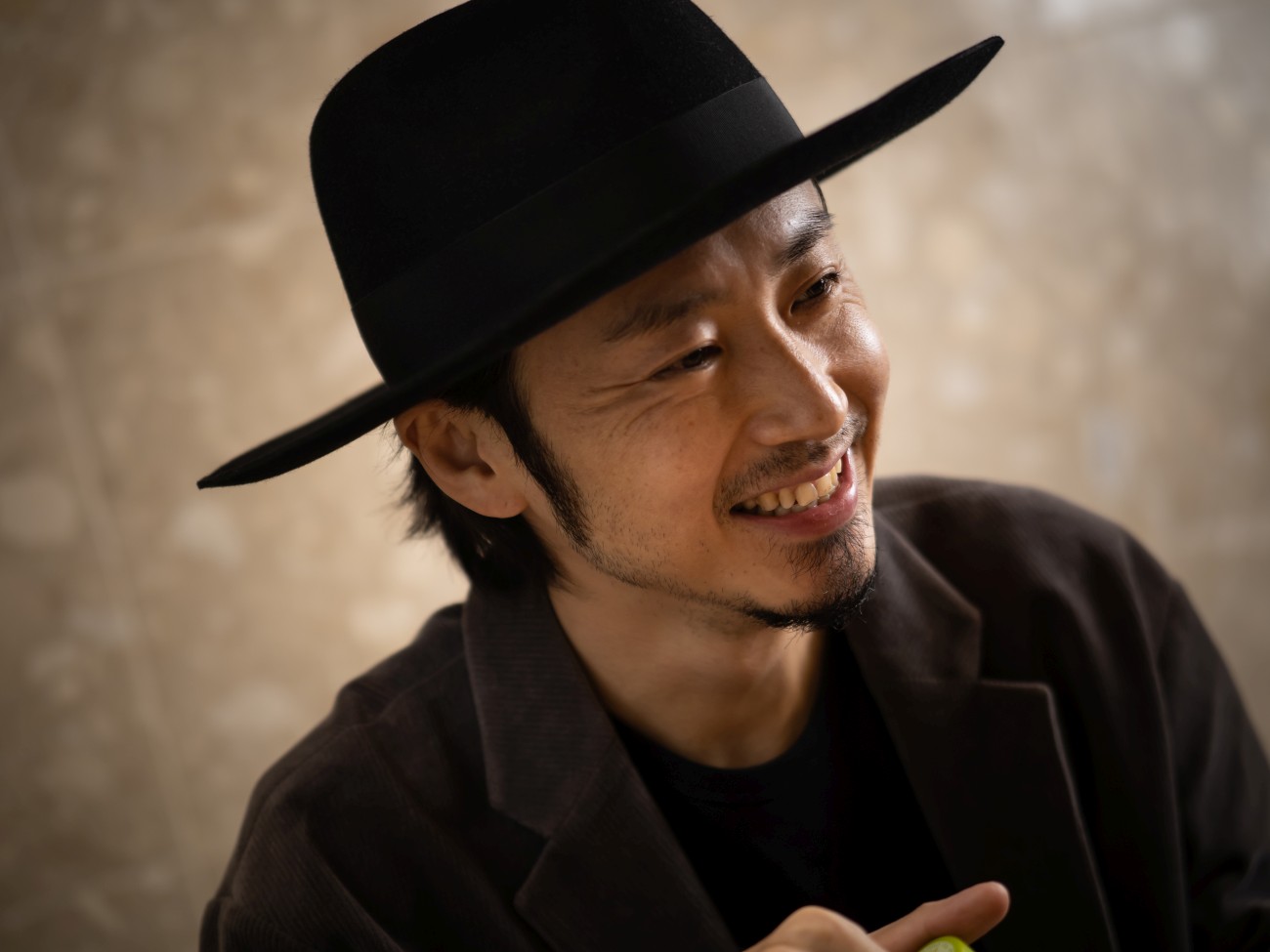 Credit: ALMA (ESO/NAOJ/NRAO). All rights reserved.
Credit: ALMA (ESO/NAOJ/NRAO). All rights reserved.
Did you see the stars?
Oki: It was hard to spot the Milky Way or the Southern Cross because there were too many stars in the sky. After visiting ALMA, we went to Uyuni Salt Flat and took pictures of stars with a single-lens reflex camera. In front of me, the Milky Way stretched out across the star-filled night sky. I was overwhelmed and burst into tears. Even though we live in such a beautiful world, humans are fighting. I couldn’t stop crying with awe and various mixed emotions.
Musicians should surely go to space. The work created from such emotions is delivered to everyone.
Oki: I might just keep crying and end up being useless (laughs). But what made me happy was that the atmosphere that I felt there was exactly the same with the feeling I had when I wrote the song ALMA. When I met astronaut Kimiya Yui the other day, he asked me, "Why are you able to write a song that feels like you went to space even though you have never been there?" I was very happy to hear that.
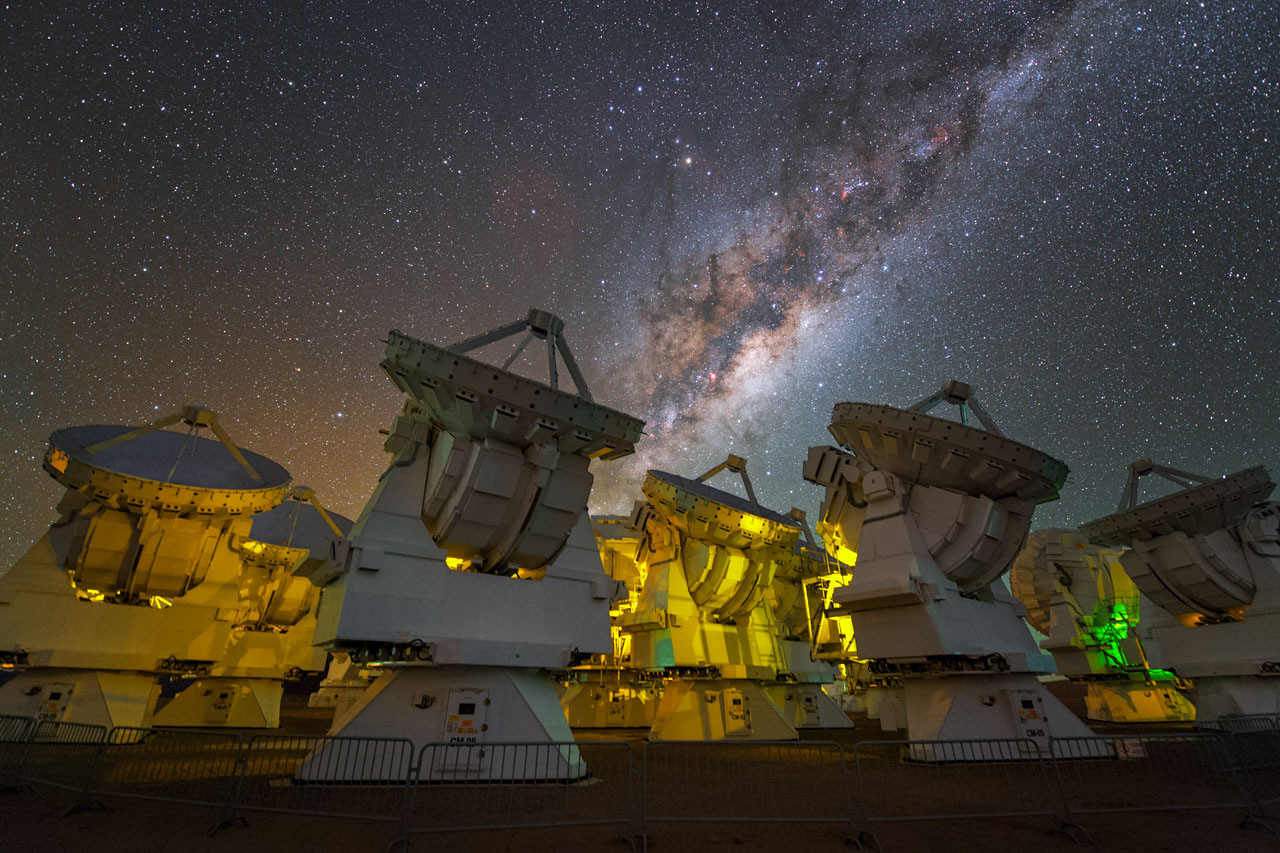 Credit: Y. Beletsky (LCO)/ESO
Credit: Y. Beletsky (LCO)/ESO
Expectations for a new discovery with impact beyond that of a black hole
Are there any results that attracted your attention after visiting the ALMA site?
Oki: I used the image of R Sculptoris for the cover of our album "New World" released in December 2012. This is an image of the old star ending its life. It was a remarkable achievement in the ALMA early scientific operation. This image shows us that there is a dying star while there is a new star that is being formed. I thought the concept would go well with the song.
You often use the words like reborn and reincarnation in ACIDMAN songs.
Oki: I'm a non-religious person, but I like Buddhist philosophy and take reincarnation as a matter of course. While a black hole pulls everything in space, it also spouts out star forming materials beautifully. It makes me feel the magnificence of reincarnation.
Our body might have an origin in a fragment of a star that has finished its life.
Oki: This water might come from a teardrop of someone somewhere...
It’s very poetic. What other observation results are you interested in?
Oki: What surprised me was the first image of a black hole. The Event Horizon Telescope observations that include ALMA directly imaged the black hole. I felt like the black hole was something in movies or comics, but it was actually captured while I am alive. I was deeply moved, heaved a blissful sigh and burst into applause. It was amazing.
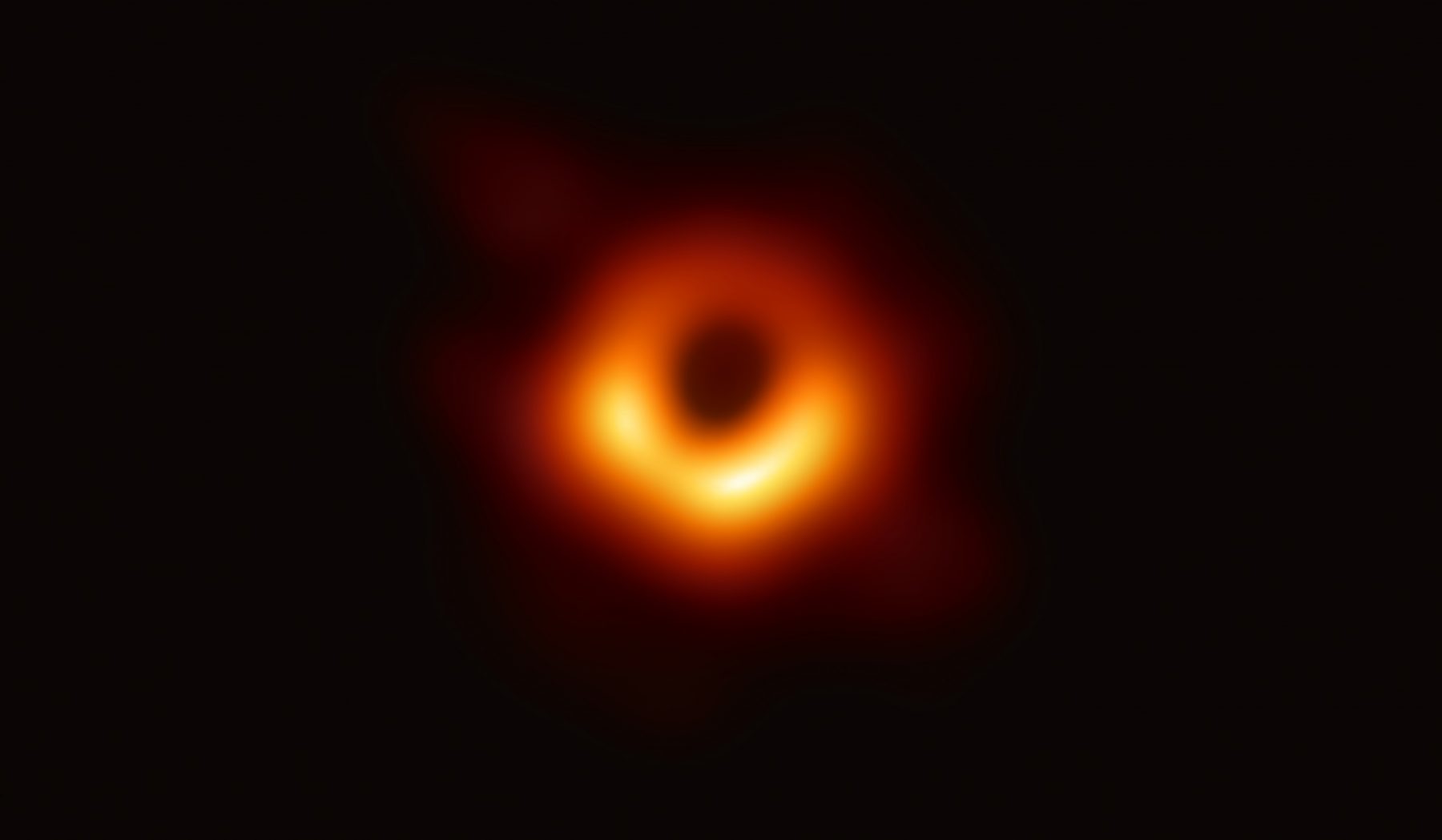 Image of a black hole at the center of the elliptical galaxy M87 taken by the Event Horizon Telescope. Credit: EHT Collaboration
Image of a black hole at the center of the elliptical galaxy M87 taken by the Event Horizon Telescope. Credit: EHT Collaboration
Direct imaging of a black hole was a great achievement.
Oki: Yes, I think it's worthy of the Nobel Prize. It's remarkable that astronomers have visualized what everyone envisioned when they were kids. Another discovery that surprised me was the discovery of the Higgs boson, which is not relevant to ALMA observation though. When I heard the news that the Higgs boson was found, I almost collapsed from the chair (laughs), because it was called "the God particle." I let out a yell of surprise "No way!" I expect the next discovery will have an even greater impact than the black hole and Higgs boson.
ALMA has a plan to double the resolution and double the frequency bands for simultaneous observation. Once it has been realized, we may be able to observe amino acids, organic molecules, and other substances that are ingredients for life. Actually, there might be a possibility that ALMA may have already captured it.
Hiramatsu: There are a lot of radio waves emitted from various substances. So, even if radio emission from amino acids have been observed, they may have been missed. Innovation of data analysis is needed.
Oki: Stunning! I got goose bumps with excitement. I’m sure ALMA will find organic matter soon, but it might have already been found, and it is a matter of the speed of analysis. I can't wait to hear the news. I hope that extraterrestrial intelligent life forms will be found, and I believe in the possibility. On the other hand, I also think it would be great if it turns out that there is no evidence for life in the Universe. Either way, it will be a fantastic discovery. I hope ALMA will clarify the meaning of our existence. I'm really looking forward to it.
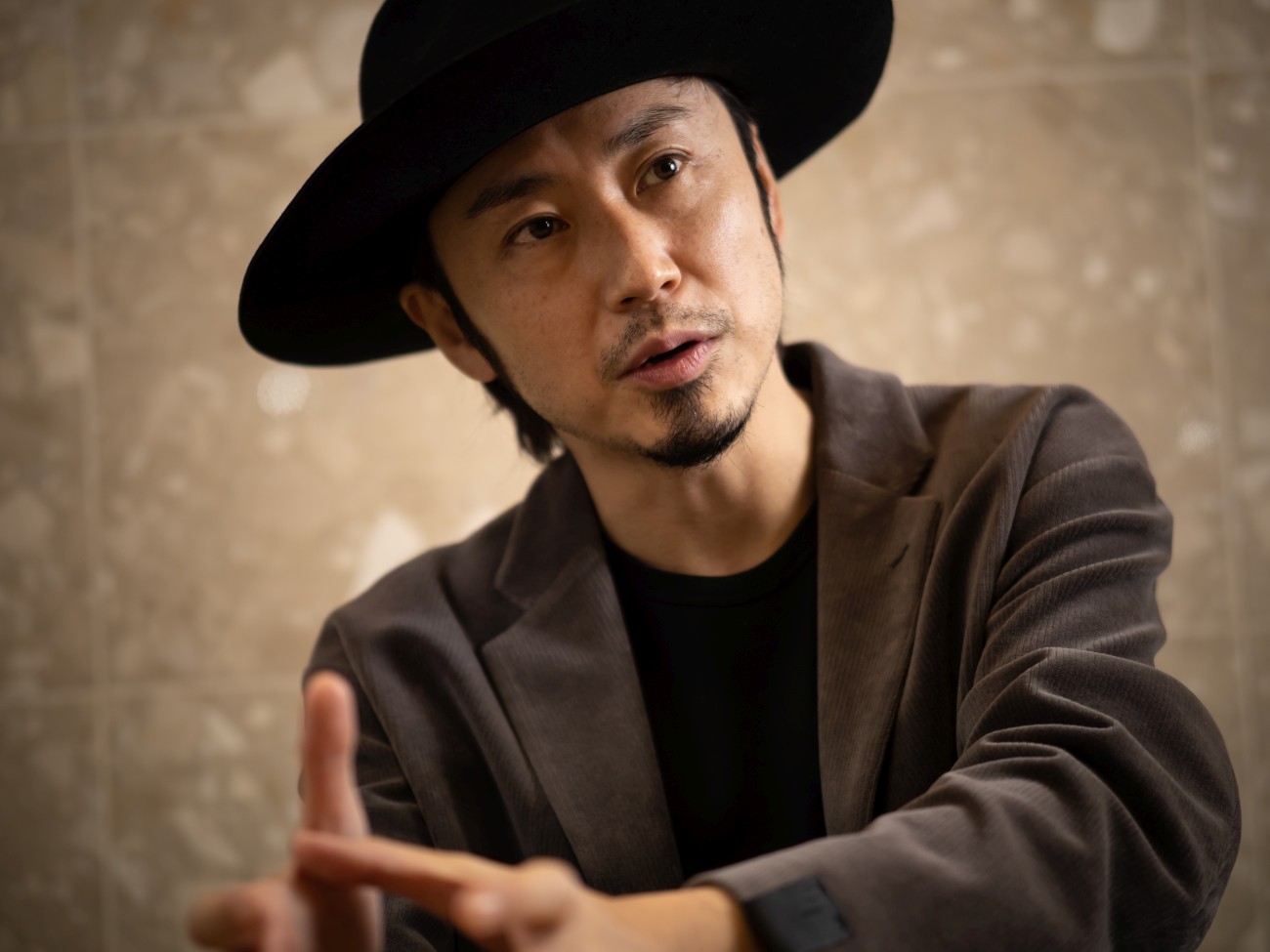 Credit: ALMA (ESO/NAOJ/NRAO). All rights reserved.
Credit: ALMA (ESO/NAOJ/NRAO). All rights reserved.
The meaning of humans exploring the Universe
How do you wish to continue to be engaged in space and music?
Oki: The ultimate purpose of music is entertainment. So, we must offer something people can enjoy. The emotions I feel from space are very much alike the emotions I receive from the reactions of the audience and the feelings when writing songs. During the shooting before this interview, I saw the satellites around Jupiter, Ganymede and Europa with binoculars (within the premises of NAOJ). That emotions that I felt with those celestial objects are similar to the emotions I get from music. Through music, I want to continue to convey the joy of discovering something that we didn't know and the joy of seeing something we couldn’t see.
In the lyrics of the song "Last Star", there is a part "The sound of that blue star would be the sound of life." Since sound cannot be transmitted without air, I felt it might be a proof of life.
Oki: I hope so. Sound can change the world in one second. While the low-pitched sounds plunge us into a somber mood, the high-pitched sounds make us feel bright. It's like magic. I wish to continue to use the magic in a positive way.
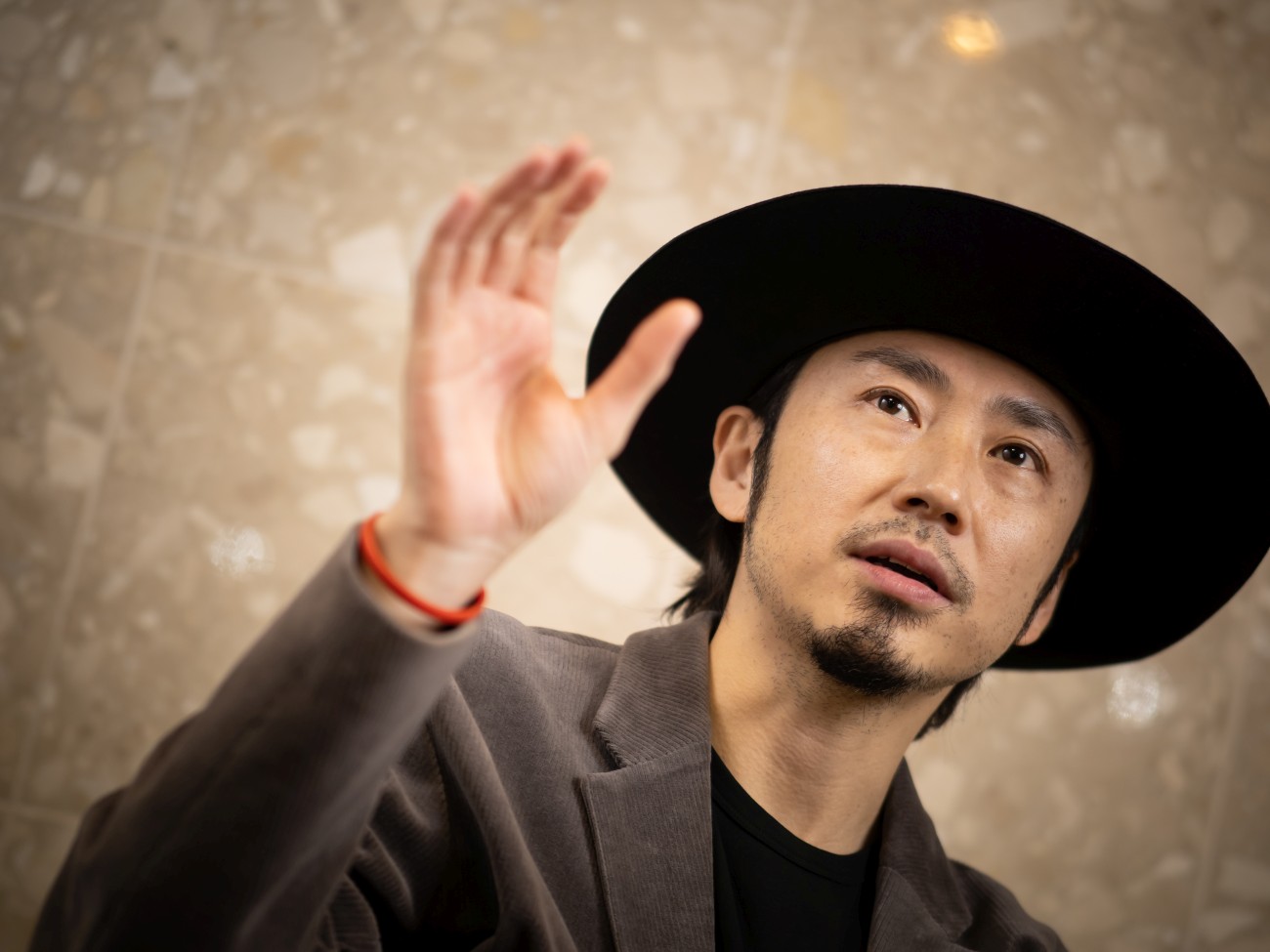 Credit: ALMA (ESO/NAOJ/NRAO). All rights reserved.
Credit: ALMA (ESO/NAOJ/NRAO). All rights reserved.
It’s like creating a new universe.
Oki: This might sound exaggerated, but I think music is the creation of a Universe, and the moment when a sound is created is the moment of the Big Bang. Music and the Universe are very similar. I believe in the superstring theory that 17 kinds of elementary particles found in the Universe may have a common origin. The word "string" reminds us of the strings of a guitar (laughs). These 17 kinds of elementary particles resonate with each other and vibrate in harmony. The moment of making a sound with a guitar has something associated with the Universe.
Are you playing the guitar while thinking about the string theory?
Oki: I think I'm the only musician who has that kind of feeling (laughs).
Final question. What do you think about the meaning of humans exploring the Universe?
Oki: I think human beings have innate impulse for searching for the answers to where we came from and where we are going. We want to know how this world is created. Feeling the connection with the Universe is feeling connected to life. Everyone wishes to be inspired by life and the Universe, for sure.
Nobuo Oki
Rock band ACIDMAN's vocalist and guitarist. Formed ACIDMAN in 1997. With the themes of life and the Universe, he pursues the possibilities of music with a wide range of sounds. Performed as the headliner band in numerous music festivals. To date, released 12 original albums. Performed six times at Nippon Budokan. In 2017, celebrating the 20th anniversary of the formation of the group, performed the rock festival "SAI" at Saitama Super Arena in their home base Saitama Prefecture.
He is a certified pharmacist and also serves as a representative of the agency to which the group belongs. He has been interested in space since his childhood, creating a unique world view that reflects his knowledge and thoughts about the Universe.
He had talks with many scientists in the aerospace field, such as Vice Director General of the National Astronomical Observatory of Japan, Professor Jun’ichi Watanabe, Astronaut Kimiya Yui, Doctor of Science Makoto Yoshikawa, and Assistant Professor Junichi Haruyama of the Institute of Space and Astronautical Science (ISAS).
In 2022, the rock festival "SAI 2022" will be held for the first time in five years, celebrating the 25th anniversary of the formation of the group.
http://acidman.jp/
